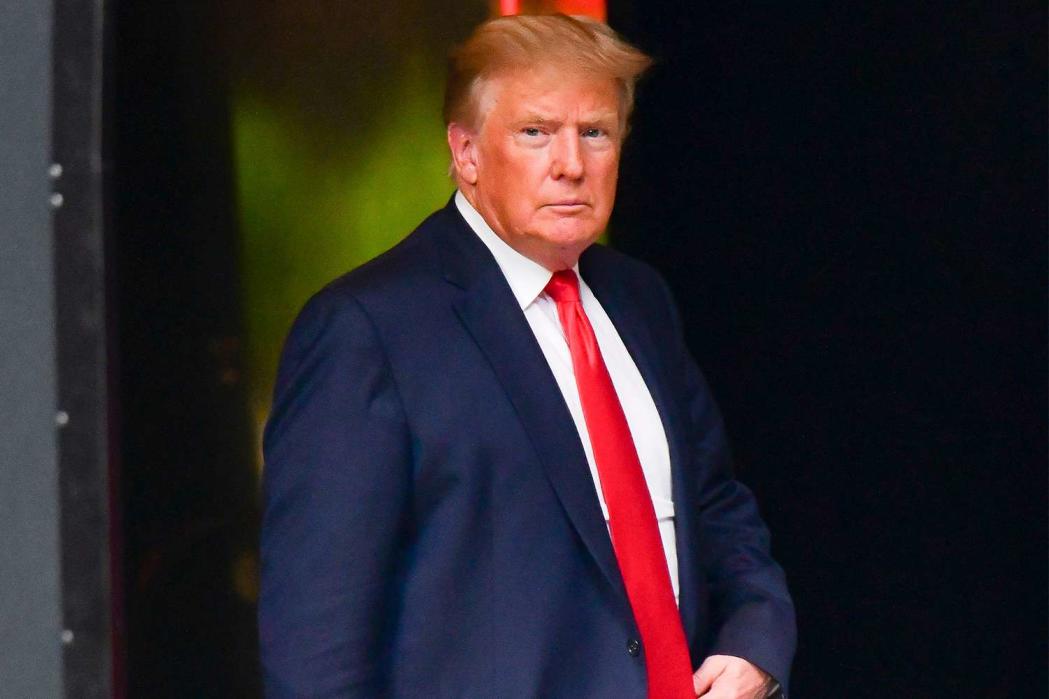Espionage Act Explained: Trump Is First U.S. President Investigated for Potentially Violating the 1917 Law

- Oops!Something went wrong.Please try again later.
James Devaney/GC Images Donald Trump
The Friday release of a previously sealed search warrant executed by the FBI at Donald Trump's Mar-a-Lago home this week reveals a startling aspect of the criminal investigation into the alleged mishandling of White House documents: the FBI was seeking evidence to determine whether the former president violated the Espionage Act and other laws related to national security.
Under a section labeled "property to be seized," the warrant, viewable here, indicates that the FBI agents were seeking "all physical documents and records constituting evidence, contraband, fruits of crime, or other items illegally possessed in violation of" three sections — 2071, 1519 or 793, better known as the Espionage Act — in Title 18 of the United States Code.
RELATED: Trump Suspected of Violating Espionage Act, According to Mar-a-Lago Search Warrant
A receipt that accompanied the unsealed warrant shows what federal agents collected in their search of Trump's Palm Beach, Fla., residence.
Among the materials retrieved were 11 sets of classified documents, including some marked "top secret" that are only meant to be viewed at secure government facilities.
Binders of photos, a handwritten note, unspecified information about French President Emmanuel Macron and an executive grant of clemency for former Trump aide Roger Stone were also listed on the receipt.
That those items were part of an investigation into potential crimes associated with violations of the Espionage Act is historic. No U.S. president has been investigated for violating the act, which was first enacted by Congress in 1917 during World War I.
Three sections of Title 18 of the United States Code are listed on the warrant. Section 793 covers the unlawful retention of defense-related information that could harm the United States or aid a foreign adversary. Section 1519 covers destroying or concealing documents to obstruct government investigations or administrative proceedings. Section 2071 covers the unlawful removal of government records.
RELATED: Unpacking the Far-Right Terminology Aiming to Discredit the Federal Investigation into Donald Trump
Trump claimed on Friday that he declassified all the documents found during the search of Mar-a-Lago, The New York Times reports, noting elsewhere, however, that the laws listed on the warrant don't hang on whether the information was deemed unclassified.
Certain criminal laws enacted by Congress to protect national-security information are separate from the system of classifying documents with executive orders as "confidential," "secret" or "top secret," the Times report explains.
U.S. Attorney General Merrick Garland announced Thursday that, in an effort to be transparent, the Department of Justice filed a motion in a Florida court to unseal a search warrant the FBI executed at Donald Trump's Mar-a-Lago home earlier this week.
Never miss a story — sign up for PEOPLE's free daily newsletter to stay up-to-date on the best of what PEOPLE has to offer.
The former president also "encouraged" the release of the warrant that was used to grant federal agents access to his Palm Beach, Fla., home, where they searched for classified nuclear documents and other materials, The Washington Post reported Thursday.
But before the warrant was released through official channels, it was leaked Friday afternoon when several news outlets published its contents.

